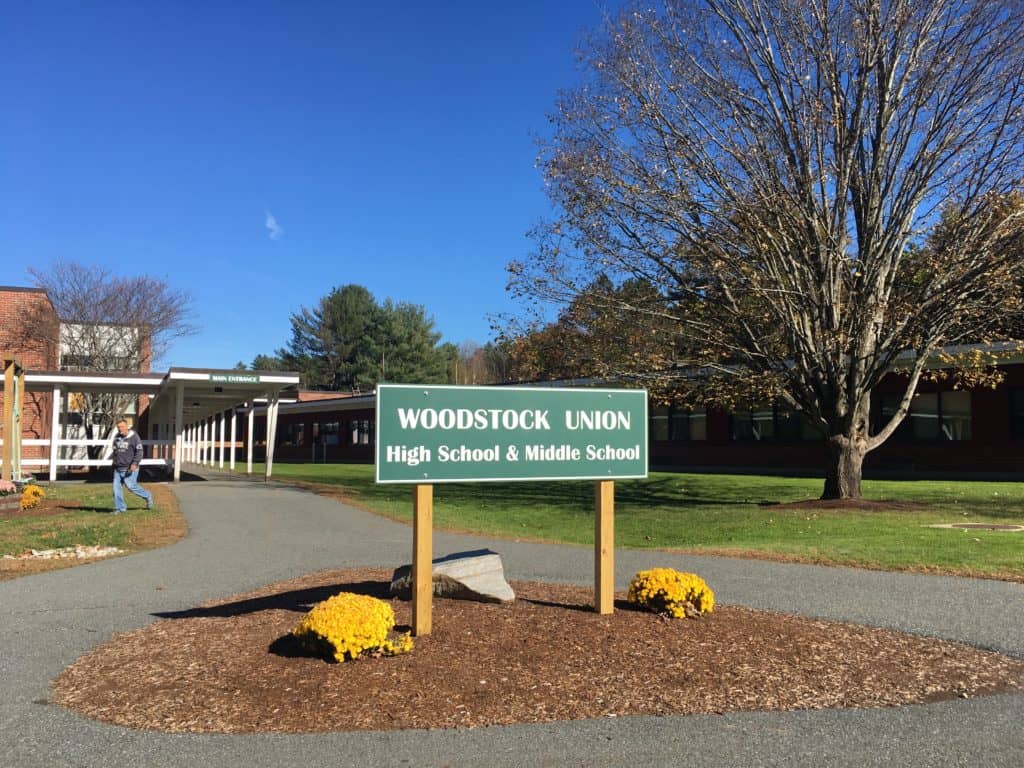
By Curt Peterson
As growth of COVID-19 is expected to be exponential, Gov. Phil Scott ordered all schools to close March 18 through at least April 6.
“The orderly dismissal of schools is essential to support both the state’s response to COVID-19 and the needs of children and families across Vermont,” Gov. Phil Scott said. “We must ensure children are safe, nourished, and still learning even as the traditional structure of school is disrupted. The work of educators will be essential in this effort.”
Scott also ordered schools to develop plans for meals and remote learning.
Nicki Buck, chair of the Hartland School Board, part of Windsor Southeast Unified School District, told the Mountain Times, “I am blown away by our district administration and our team and how they have responded to this situation. No drama, and solid ideas for solutions, then they make it happen.”
Windsor Southeast schools and Slate Valley Union Unified School District schools closed on Monday, ahead of Gov. Phil Scott’s requested Wednesday target date.
Schools in Two Rivers Supervisory Union, which includes the towns of Chester, Cavendish, Mount Holly and Ludlow, closed over the weekend after Superintendent Meg Powden learned a person in Ludlow had a presumptive case of Covid-19.
“We will be closed until further notice,” Powden wrote on Facebook.
The Hartland School Board held a Monday meeting in the fire house, with each board member sitting at an individual table.
Food preparation and distribution is a major challenge for school districts. Hartland Elementary is preparing breakfast and lunch meals as requested, which will be delivered to regular bus stops. Students or parents can meet the delivery vehicle at the bus stop and receive that day’s lunch and the next morning’s breakfast if requested.
If the family has a problem connecting with the drivers, they can make other arrangements with the school.
Roughly 35 students in Hartland receive backpack meals for weekends to provide food security. Buck said there are confidentiality issues around that program, so eligible families can either agree to have the weekend meals delivered with the Friday lunches at the bus stops, or call the school to make other arrangements, such as picking up the backpack at the Hartland Food Shelf.
Hartland teachers and staff will be compensated as usual during the shut-down – teachers will be busy educating kids remotely, Buck said, and para-educators will be training food delivery people to avoid transmitting the virus to recipients, as well as other duties the district is designing for them.
Para-educators assigned to families with special needs will stay in touch to make sure students’ challenges are met, and they are secure.
Students will learn and interact through technology. Buck said only three children in Hartland have no internet access, and only a few have inadequate access. The district is working to mitigate these individual problems.
Google Hangout group meetings, and classes-by-email are used to provide continuing education, monitored most of the time by educators.
“We’re hoping these programs will help ameliorate effects of isolation,” Buck said.
Buck’s own children are home due to the school closing. She works from home anyway, creating digital models for hydrology projects and studies, so can keep an ear open while working as usual. Other families, she said, are forming small cooperative childcare groups, and local youths offer childcare services on the listserve.
She has heard only positive remarks from other parents so far.
“We have particular worries about families where both parents are involved in healthcare,” Buck said. “We are working on strategies to help them. Teachers are checking on families, and we will consider problems on a case-by-case basis.”
Windsor Central Supervisory Union Superintendent Mary Beth Banios responded to the Mountain Times with a prepared statement dated March 15 which did not include any information about compensation, food preparation or distribution.
Chromebook devices and study materials will be handed out to all but the Pre-K students, Banios said.
“We will provide some extra handouts and work packets in case you have no internet access,” Banios wrote. “Teachers and some support staff will keep in touch with families.”
Slate Valley Unified Union School District superintendent Brooke Olsen-Farrell described their response, which is similar to Hartland’s.
Food distribution, including a program for food-insecure families, is in place.
“We are moving to a remote learning delivery system,” Olsen-Farrell wrote in an email. “We are also preparing to collaborate with the state regarding childcare for parents that are healthcare providers.”
Children will be given a form to fill out and return to staff members distributing the meals.
Food pickup will be available at Benson Village School, Castleton Elementary School, Fair Haven Grade School and Orwell Village School. Meals will also be delivered if people are unable to make the pick-up locations.
“At some point in the future, meals may be available along the bus route, but we will let you know in advance if and which this change is made,” Olsen-Farrell wrote in a Facebook message.
Slate Valley district will continue to compensate teachers and staff. Remote board meetings are part of future plans.
All meals in Rutland city will be available on school busses at the regular bus stops.




